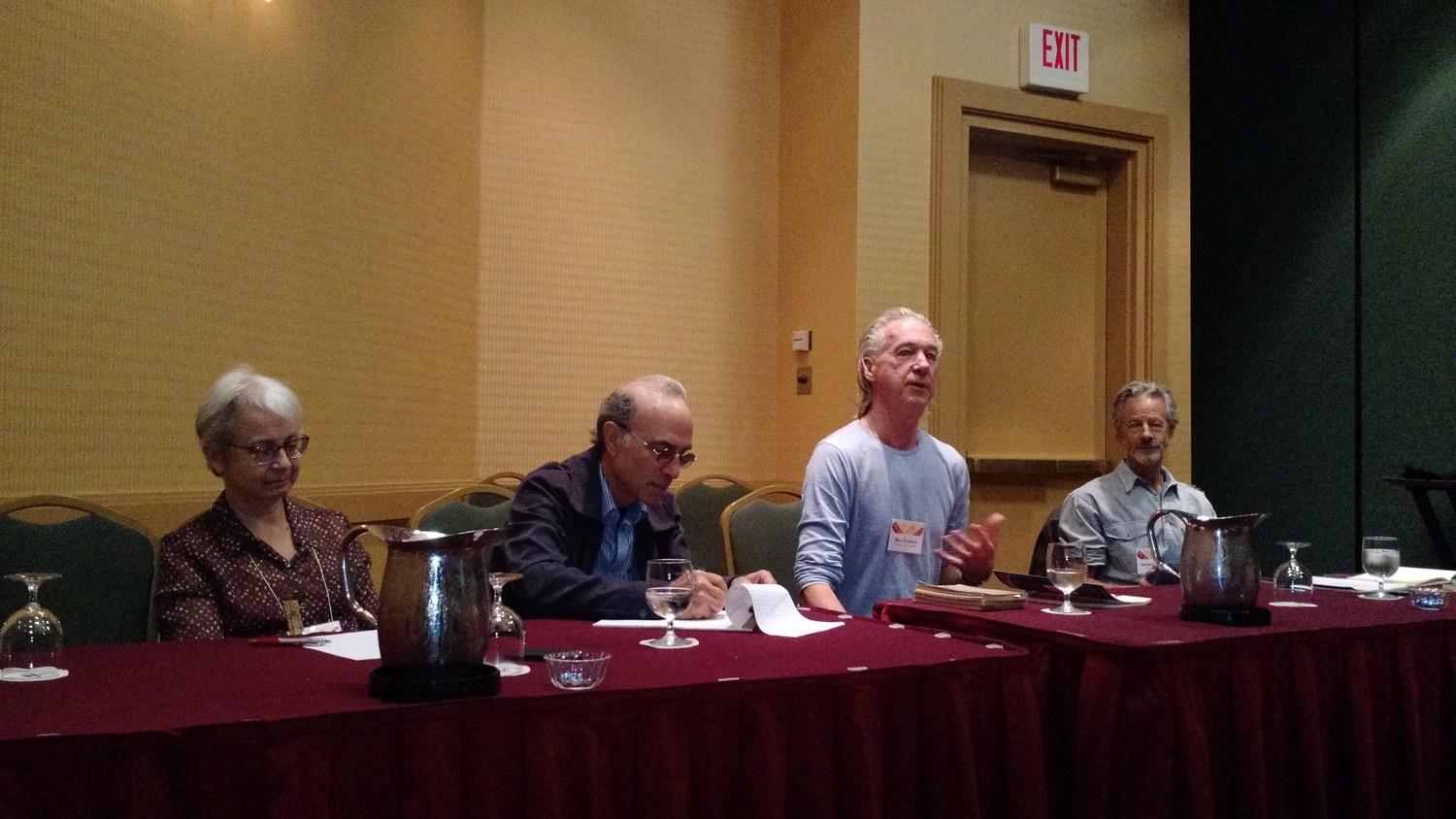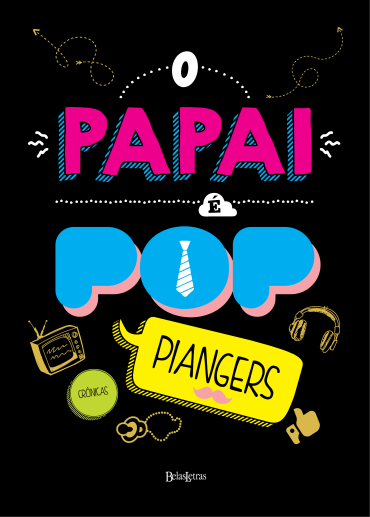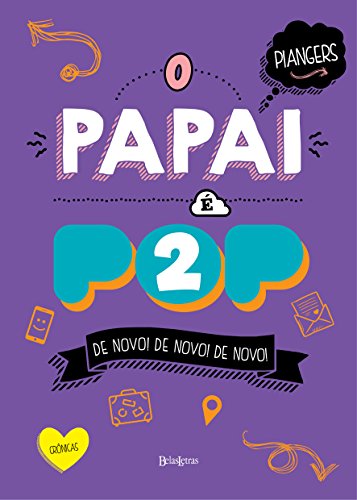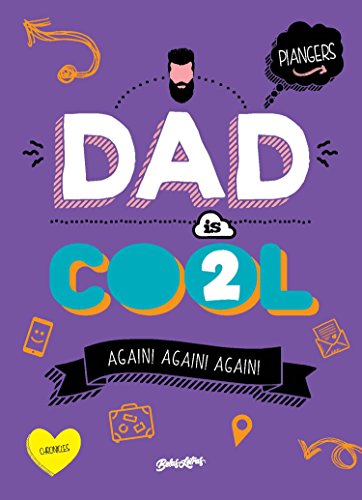By late 2016, I completed what would certainly become the most important book translation I'll ever work on: the memoirs of a Holocaust survivor.
Read moreWhen 3% Felt Like 30: A Roundtable On Literary Translation In The 60s & 70s
During the 38th Annual Conference organized October 28-31, 2015 by the American Literary Translators Association (ALTA) in Tucson, Arizona I attended a panel titled “When 3% Felt Like 30: a Roundtable on Literary Translation in the ‘60s and ‘70s,” which was moderated by Steve Bradbury with panelists Stephen Kessler, Andrew Schelling, and Marian Schwartz.
Having started working as translators in the 1960s and 1970s, each one of them reminisced about how they first discovered literature not written in English and how, back in the day, it seemed that there was more translated literature entering the U.S. market than there is today. The title of their panel is a reference to the fact that, in average, 3% of all books published every year in the United States are works in translation, as indicated by Three Percent, a resource for international literature at the University of Rochester.
Steve Bradbury, a translator of Chinese poetry and editor of Full Tilt: A Journal of East-Asian Poetry, Translation, and the Arts, introduced the panel and started out by talking about his own experiences as a teenager in the sixties. “I remember it vividly. It was like I had put my finger in a socket and was electrified,” he recalled finding a shelf of foreign books at a local bookstore.
Spanish-to-English translator and poet Stephen Kessler said he was an A student of Spanish in high school and remembers discovering the works of Federico García Lorca and Pablo Neruda, the main Spanish-languages poets at the time. “You usually needed to go to Spain or Mexico to find material in Spanish,” he said, explaining these titles were hard to come by.
Andrew Schelling, poet and translator from Sanskrit to English, talked about the political context of the era. “Finishing high school in 1970, the main event was the Vietnam War,” he said, mentioning that reading foreign books was a way to resist the U.S. socio-political climate at the time. “That was part of that energy: finding these books, the search for alternative values, foreign literatures.” He said he decided to learn Sanskrit, mentioning the popularity of the “Beatles and bedspreads” counter-culture. “Popular culture kept India alive in our imagination,” he added.
When it was Marian Schwartz’s turn to talk, she said she found her presence in the panel a little contradictory. As a translator of Russian classic and contemporary fiction, history, and biography, she reminded the attendees that the USSR wasn’t very popular back then due to the Cold War with the United States. “If anyone read a Soviet novel, they’d be discredited,” she emphasized, saying that back in the sixties she was learning Russian in Harvard as a dead language. “There weren’t many Westerners going to Russia. Professors were not fluent in Russian because there wasn’t much contact.”
The panel was then asked about how exactly they started out as translators after falling in love with foreign cultures and literature. Stephen said he felt awkward at first when reading poems and comparing Spanish originals and English translations side by side, admitting he was young and impressionable. “I know grammar. I can read. I can speak Spanish when I travel... What’s wrong with me? When I read these poems, I get something completely different!” he recalled. “Everyone was just winging it, so that was how I got into translation: I was looking at the material available then and didn’t think they were that good. I thought I could give it a shot.” He said translating also made him a better poet.
Andrew added that being a translator wasn’t a full-time activity back then and many wondered, “If you want to be a translator, what are you going to do for your day job?” Marian agreed, saying that she was still freelance-editing to pay her bills and couldn’t live on translation work alone.
She told attendees that she started working in the seventies, when students of Soviet culture and literature were discovering the Silver Age of Russian Poetry from the 19th and early 20th centuries. “Established U.S. poets were bringing Russian poets to the American audience through translation,” she recalled.
On the more practical side of things, Marian said publishing houses were more artistic back then. “If someone had an MBA, they’d be laughed at,” she joked. Soon after that, the corporate mentality started to take over and publishers were being bought and merged. “That’s when the number of literary translations dropped,” she contrasted.
She also mentioned the underground feeling of literary translation dissemination at that time, and remembers typing five copies of translated material in onion-skin paper, keeping a copy to herself, and passing the rest on to four friends, so they would do the same and carry on the tradition.
Stephen agreed with the improvised character of translations back in those days. “Our group had a fly-by-night operation. We’d put a circle around a C for copyright. We didn’t even have ISBNs. We just wanted to publish and I was semi-visible for a few seconds.”
The panel discussed the relationship between translators and publishers at more length. “New Directions, by then, was an endorsement of high-quality work,” Steve emphasized. “A third of their titles were translations. And we didn’t care they were translations; we just wanted to read good material. We wanted to read books that would change our lives.”
Marian mentioned New Directions as well. “I didn’t have copyright back then, but they wanted to publish my translations when they took over, and they wanted me to have copyright of my translations.”
When talking about what changed since then and, considering the lack of official numbers, whether they believe that the “electrifying feeling” may give us a false notion that more translations were being produced in the sixties and seventies compared to now, they admitted that they may see the past through rosy goggles.
“We weren’t just reading literary translations; we were reading the same literary translations and talking about it with passion,” Steve chimed in. “There are a lot more translations being published today, but who’s reading them? The real problem for us isn’t to have books published; but having books read,” he added.
“Maybe we think of it as a golden age because we were young,” Stephen admitted. “Back then, the U.S. felt like a broad culture, instead of the specialized culture of nowadays. That’s what we’re nostalgic about it: it was easier to find those books that would change our lives.”
“We also don’t have bookstores as a meeting place anymore, where people discovered things together,” Marian explained. “There’s money out there for something that is potentially exciting,” Steve added, on a positive note, mentioning the digital culture, the popularity of audiobooks, and the “clicking generation.”
Stephen agreed, but didn’t rule out printed literature altogether. “Paper books are becoming LPs. It’s for hipsters,” he suggested. “Something becomes viral for ten minutes. Then something else becomes viral. That’s why people are so stressed out nowadays,” he joked.
RAFA LOMBARDINO is a translator and journalist from Brazil who lives in California. She is the author of "Tools and Technology in Translation ― The Profile of Beginning Language Professionals in the Digital Age," which is based on her UCSD Extension class. Rafa has been working as a translator since 1997 and, in 2011, started to join forces with self-published authors to translate their work into Portuguese and English. She also runs Word Awareness, a small network of professional translators.
"Dad's Cool" By Marcos Piangers
Correct me if I'm wrong, but the dream of every translator is to work on a book they can translate as if the words were being whispered directly into their ear, effortlessly. A book they could have written themselves, given how familiar they are with the subject. A book about something that is already part of their universe, so much so that they already know what the next line will say
Through the recommendation of a dear friend and diligent translator, Editora Belas Letras contacted me to work on a translation sample of O papai é pop, written by Marcos Piangers, a media and radio personality in Brazil. I hadn't been aware of his work and, to this day, I still haven't met him in person, but after translating his book, I feel as if we sat down at a bar, shared a beer or two over some traditional Brazilian petiscos and talked about raising kids.
He has two daughters, 10 and 3 years old; I have a 7-year-old daughter and a 3-year-old son. He is a hands-on dad who changes diapers, pretends the spoon is an airplane while feeding babies, reads bedtime stories, takes them to adventures at playgrounds and malls, and gets irritated if someone asks him whether he is "the nanny for the day." I have one of those at home―a hands-on dad, that is―and it's a truly moving experience to realize you couldn't have chosen a better person to share this journey called "raising kids." I'm sure that is how Mrs Piangers feels, too.
From the very beginning, while working on the test translation, which involved two of the 32 short stories that compose the book, the words came easily to me. That was the feeling I go throughout the translation of the entire book: Piangers' writing is sincere, it flows naturally. Besides, we're virtually the same age (he is twelve days younger than me) and, having grown up in the ‘80s and ‘90s in Brazil, we both have the same cultural references. Readers feel like they're having a conversation with him, and, indeed, most often the conversations you have with other adults who also have children are about parenting.
However, he's not theoretical about the topic; he doesn't recommend this or that method or technique to make sure you're successful; he knows that failure is part of the deal and that sometimes your children are the ones teaching you something. Piangers is an observer who has picked out true gems from his parenting experiences to write about in a way that makes them universal. And he doesn't talk about the perfect, precious moments only... there's a lot of guilt and poop in this book.
I felt that this universal subject, written in such a conversational tone, deserved a translation faithful to the concepts and images, not just to the words written in the original Portuguese. I can only hope I have done it justice. Whenever my translator brain took over the mommy brain throughout the translation, I looked for inspiration in my real life. "How would I say this if I were talking to a friend about one of my kids?" or "What would my husband say (has said) in this situation?"
For translators or language buffs reading this, here are a few examples of sentences that, translated literally at the word level, could have jarred readers from their spell and thrown them back into stark reality, while my intention was to keep English-speaking readers in the same kind of trance I was, preferably reading through the book without interruptions (while the kids were at school or sleeping.)
Período de adaptação = "Period of adaptation," which became "Period of adjustment"
Pra verem o que é bom pra tosse = "So they see what is good for their cough," which would be completely lost in translation and became "That should teach them a lesson"
comida industrializada = "Industrialized food," which would bring an utterly different image to the reader's mind compared to "processed food," a jargon so dear to new parents who are careful about what they feed their children
enquanto abraçamos nossos filhos no sofá = "while we embrace/hug our children on the sofa," sounds way more forced than "while cuddling with the children on the couch"
Não quero ser saudosista = "I don't want to be nostalgic" could work, but then we'd get into that argument about the true meaning of saudade, that Portuguese word everyone says is untranslatable, and we'd have the Nostalgia Team vs. Longing Feeling Team and nothing would work quite as good as "I'm not into talking about the good old days"
- O fato de a maioria do meu almoço cair na minha roupa = “The fact that most of my lunch fell on my clothes” was translated as “The fact that I’m wearing most of my lunch,” which is a common joke among people who aren’t as careful as they should while eating and end up getting their clothes all dirty during meals
Here's a link to an interview and a TEDx Talk I watched
while trying to get the right tone of Piangers' writing
(This book translation was a true sensory experience!)
At the expense of sounding cheesy, this is an ideal book for parents to read to their children before bed as well. The short stories are brief, yet say so much, and kids will surely identify themselves with the little ones depicted in them. Also, the paperback version looks gorgeous, with all the drawings kids can color, with a special space for them to draw Daddy.
All in all, my goal was not to make anything sound awkward or out of place in the English translation, but to guide readers effortlessly through these short stories. I thought about my American, Canadian, British, and Australian friends I'd like to give a copy of this book to. I thought about how I'd like to have them experience the same thing I felt while reading Pianger's words in Portuguese, the feeling that "I could have written this book, too!"
But could we? Perhaps Piangers’ skill lies in making us imagine we could, even if, in fact, very few of us have the talent to do so and would still have time to raise kids. Because of all those mixed feelings the author aptly describes throughout the book, mommies and daddies are bound to be cheesy and laugh and cry while reading "Dad is Cool."
P.S. I wrote this review while potty training my son, as my daughter walked around the house, tablet in hand, listening to Justin Bieber songs.
RAFA LOMBARDINO is a translator and journalist from Brazil who lives in California. She is the author of "Tools and Technology in Translation ― The Profile of Beginning Language Professionals in the Digital Age," which is based on her UCSD Extension class. Rafa has been working as a translator since 1997 and, in 2011, started to join forces with self-published authors to translate their work into Portuguese and English. She also runs Word Awareness, a small network of professional translators.
The New Normal: Cuba And The Power Of Translation
During the 56th Annual Conference organized November 4-7, 2015 by the American Translators Association (ATA) in Miami, I attended a presentation entitled “The New Normal: Cuba and the Power of Translation,” presented by Esther Allen, a writer and translator who teaches at Baruch College and was selected as the Literary Division Distinguished Speaker.
A two-time recipient of National Endowment for the Arts Translation fellowships, Esther was a fellow at the Cullman Center for Scholars and Writers at the New York Public Library. She also co-founded the PEN World Voices Festivalin 2005, and guided the work of the PEN/Heim Translation Fund between 2003 and 2010. In 2006, the French government named her a Chevalier de l’ordre des arts et des lettres and, in 2012, she received the Feliks Gross Award from the City University of New York Academy for the Arts and Sciences.
Esther’s ATA presentation was based on an article by the same name, which she wrote for Words Without Bordersonly two days after the normalization of U.S. relations with Cuba was announced on December 17, 2014. She mentioned that many U.S. commentators foresaw an “invasion of tourists, traders, and investors.” ”The mentality is that Cuba existed in a vacuum and now it will be Americanized overnight,” Esther disagreed, explaining that the country is no stranger to globalization, as its founding father José Martí had already written about the diverse origins of Cuba extensively.
The presenter told us that Martí spent most of his adulthood in New York City, where he wrote about the United States, and his articles were published throughout Latin America at a time when Cuba was still a Spanish colony. Martí was killed by the Spanish forces in the beginning of the insurgency he had initiated, which resulted in the Spanish-American War that led the United States to occupy Cuba and establish a naval base on Guantánamo Bay. The rest, is history, as we all know.
Curiosity: José Martí identified the lack of secular children’s books. He was writing some material on the subject, but his funder from Brazil withdrew funds after they realized the material didn't have any religious content.
Recommended Reading:
Cuba: We Never Left
Written by Esther Allen for The New York Review of Books
As the translator of José Martí’s Selected Writings and currently a Biography Fellow at the Leon Levy Center for Biography, working on a book about Martí’s life, Esther analyzed how President Barack Obama mentioned the Cuban founding father in his speech. “Obama turned to address the Cuban people directly. He began with a citation from José Martí: ‘Liberty is the right of every man to be honest.’”
She wondered how Obama had arrived at that precise quote from Martí, and whether he had made a conscious decision to leave the second part out of it.
Libertad es el derecho que todo hombre tiene a ser honrado y a pensar y hablar sin hipocresia
― MARTÍ, José. Tres héroes: Bolívar, San Martín, Hidalgo. “La edad de oro” (1889), part of a series that is very popular among Cuban children.
The possible sources she found were:
“Freedom is the right of every man to be honored, and to think and speak without hypocrisy” ― English-speaking guide at the Monumento a José Martí, La Habana, Cuba, February 2015.
“Liberty is the right of every man to be honest, to think and to speak without hypocrisy” ―Cuban student translation exercise cited in Enseñar inglés básico a partir de textos de José Martí (pedagogical study done in Santa Clara, Cuba, 2011.)
“‘Liberty,’ Martí wrote, ‘is the right of every man to be honest, to think and to speak without hypocrisy.’” ― Carlos Ripoli, letter to The New York Review of Books denouncing the “Marxification of Martí,” July, 1988.
Esther went on to say that, in the late 1800s, Martí used to write for Patria, located at 120 Front Street, which is now Wall Street. “He wrote in English as a Spaniard,” she explained, “because Americans were more interested in what Europeans had to say about the United States, rather than a Latin American from a country that did not exist yet.” He also wrote a letter disapproving of a mainstream newspaper that talked about how annexing Cuba to the United States would not have been desirable.
The speaker said that Martí’s work as a journalist was paid, but not well enough, so he turned to translations. Martí translated Helen Hunt Jackson’s Ramona, which came out about thirty years after Harriet Beecher Stowe’s Uncle Tom's Cabin and is compared to it because the former raised awareness of the plight of Mexican Americans just as the latter raised awareness of the plight of slaves in the United States. Martí then decided to self-publish and distribute the Spanish version of Ramona mainly in Mexico. Esther said that he used to call it nuestra novela (our novel), meaning that he believed the book spoke to the real struggles of Latinos, albeit within the context of the years following the Mexican-American War.
Going back to normalization of U.S. relations with Cuba, Esther reminded that, in the early 20th century, Cuban anthropologist Fernando Ortíz coined the term "transculturation" to describe the distinctive cultural characteristics of Cuban history. “And that history holds some significant lessons about the roles translation can play in the process of globalization,” she assured. Whether the new generation of American translators will now be able to keep in touch with Cuban culture and learn more about its literature is something yet to be seen. “Canadians visiting Cuba each year don’t have Communist cooties,” she added, hinting at how our neighbors to the north, just as much as British and Australian individuals, may be better equipped at attempting to bring literature from Cuba to English-speaking countries at the moment.
RAFA LOMBARDINO is a translator and journalist from Brazil who lives in California. She is the author of "Tools and Technology in Translation ― The Profile of Beginning Language Professionals in the Digital Age," which is based on her UCSD Extension class. Rafa has been working as a translator since 1997 and, in 2011, started to join forces with self-published authors to translate their work into Portuguese and English. She also runs Word Awareness, a small network of professional translators.













